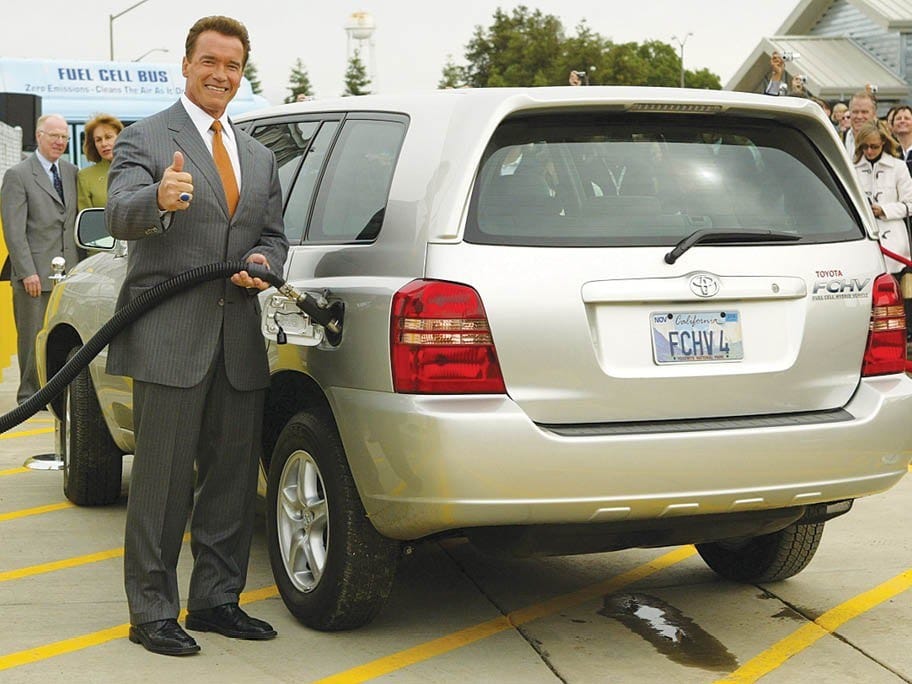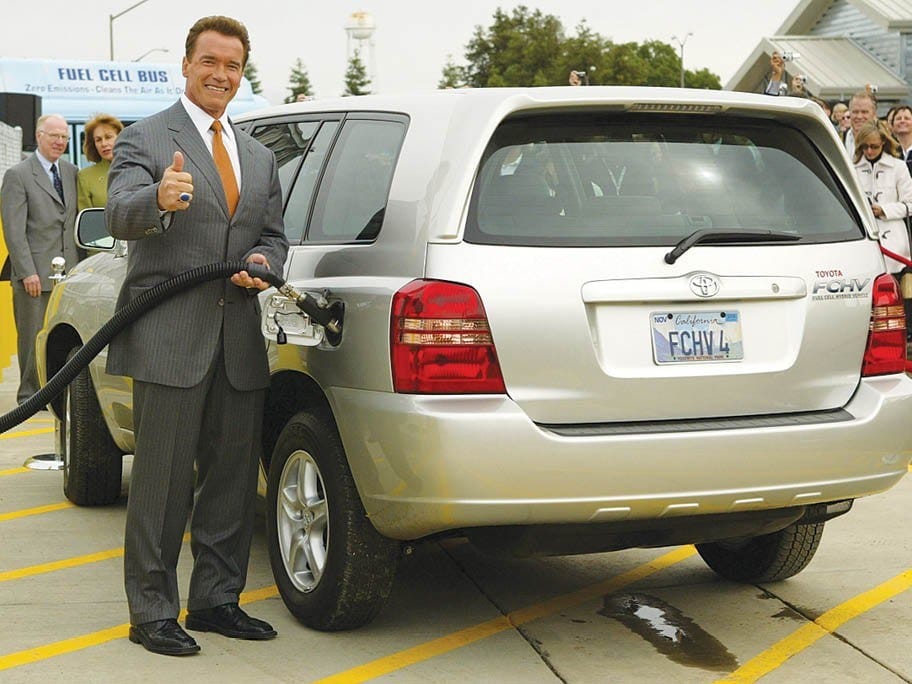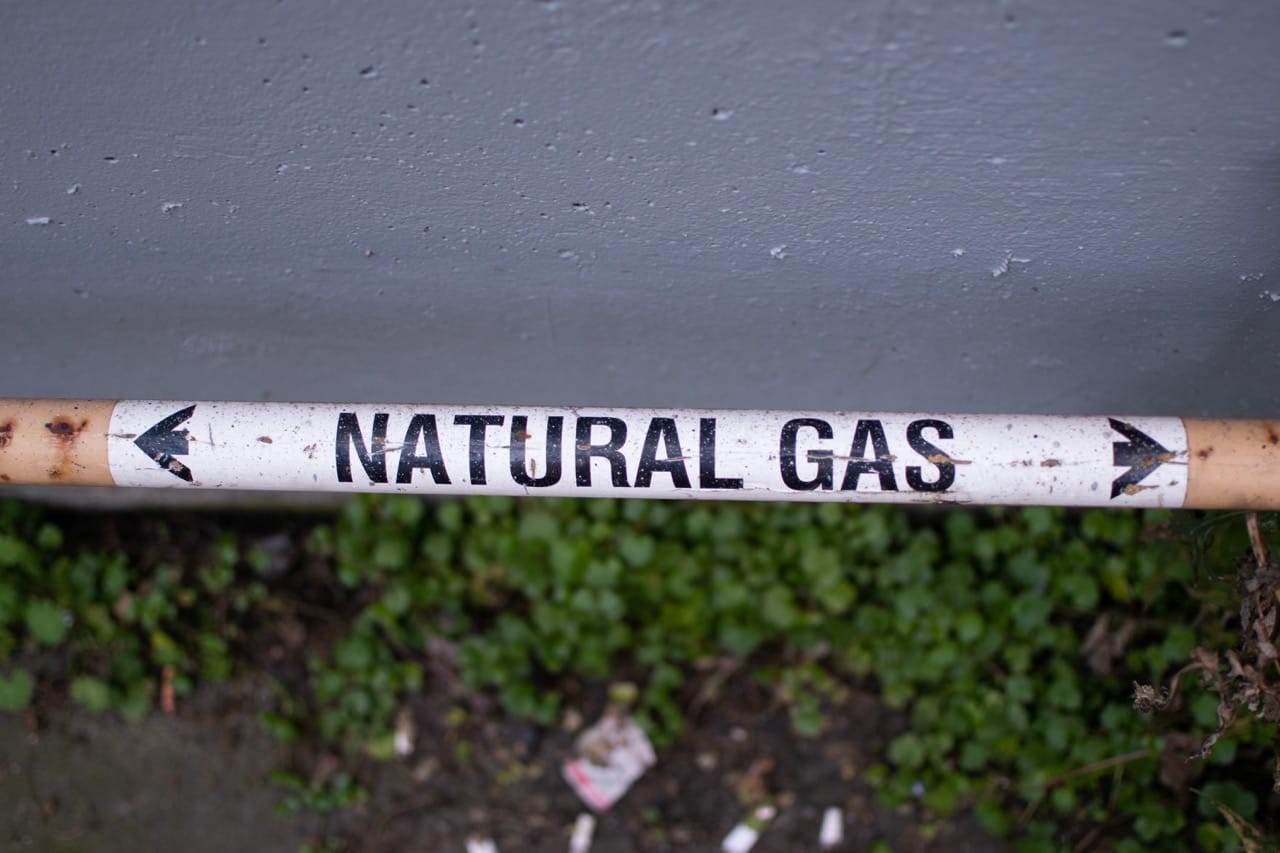Hydrogen was all the rage. Now, its future is messy.

Hydrogen is one of the most abundant elements in the universe. At least, that’s what I’ve read multiple times in reports preaching hydrogen as the fuel source of the future.
Hydrogen is an interesting alternative fuel. Unlike fossil fuels, burning hydrogen only emits water.
Governments of all stripes have been hydrogen-curious. For nearly 25 years, politicians have described hydrogen as a promising energy technology in things like trucks and aviation. Labour’s Megan Woods was keen on building a green hydrogen economy and National’s Simeon Brown just announced a Hydrogen Action Plan to spur private investment.
For a while, I’ve felt skeptical about hydrogen. It has been promoted as an exciting future fuel for 25 years… yet barely any vehicles use it. At the same time, batteries are taking over buses, cars and some small planes.
Hydrogen’s got hype… but is it necessary for a zero carbon future? The answer is yes, but its future is far more niche, and risky, than some may envision.

Hydrogen was all the rage at the start of the century.
The 2000s were all low-cut jeans and the promise of a hydrogen economy. Future cars would ride along a hydrogen highway. We would cook with hydrogen stoves. Tell your friends on Bebo about hydrogen: it’s coming to a town near you.
Hydrogen energy hasn’t happened. It is important, but not in the way you think. Half of the world’s hydrogen demand is for refining petrol and the other half is for making fertilisers. The vast majority of hydrogen is created with fossil fuels. Less than 1% is clean hydrogen: made with electricity rather than gas. That’s probably because clean hydrogen costs 4x more to make than fossil-fuelled hydrogen.
As a fuel source, it’s had challenges. It is a gas at room temperature: storing it as a liquid requires extremely cold temperatures or lots of compression. It is hard to move around and hard to store. Governments around the world have subsidised hydrogen a lot, and even still it’s not getting much cheaper.
With these challenges, is it the best option for eliminating pollution from things like trucking? No. That’s because batteries are fucking amazing.

Hydrogen has fewer uses because batteries are better
Back in the 2000s, thinking the world would be powered by batteries would be ludicrous. iPods barely lasted a few hours. How could they be good enough for trucks or planes?
That was until batteries got really good and cheap.
Lithium ion batteries are 84% cheaper now than they were 10 years ago. That has opened up so many new things that they can power. Electric cars are booming because their batteries cost way less. Home energy storage is possible with giant batteries in garages. We can even use batteries to store backup grid power: something that was impossibly expensive a decade ago.
Batteries have gotten far more efficient, too. Lithium batteries store 8x more energy per gram now than they did in 2008. Buses, trucks, and trains were once considered impossible to electrify because batteries were too heavy. Now, they can (and do!) run off batteries. Very soon, electric trucks will be cheaper than diesel.
Electric vehicles have serious convenience benefits, too. Hydrogen cars still need fuel stations. Electric vehicles just plug in at home. Nothing is more convenient than that.
The battery revolution has put a zero carbon world within our reach. It also means there are fewer and fewer use cases for hydrogen.

What does a battery-powered world mean for hydrogen?
The future fuel for most of the economy is clearly batteries. They are useful in everything from phones to ferries. This gives batteries a huge advantage that fossil fuels also have: economies of scale.
Fossil fuels are so cheap because everything uses them. That huge demand created a huge amount of investment in technology that kept fossil fuels cheap.
Batteries have the same strength. Since they are used in everything, more investment goes in to improve them. Batteries will only get better – and as they improve they’ll be even more useful.
In a battery-powered world, hydrogen’s use cases are dwindling. Buses and trucks are being electrified, or replaced by electric trains. Planes will run on biofuel. Shipping will find battery or biofuel opportunities over time. Hydrogen makes sense in far fewer fields, which explains why theGovernment’s hydrogen announcement praises electrification and waffles on hydrogen’s potential.
In some ways, hydrogen’s loss to batteries is a good thing. Making clean hydrogen takes a lot of electricity. It’s super inefficient. Batteries, however, are incredibly efficient. Replacing fossil fuels with batteries requires fewer renewables to be built to eliminate pollution from stuff like driving.
The problem is, hydrogen won’t get the benefits of scale. Since it won’t power vehicles, it is hard to quickly make it cheaper. Plus, refining petrol is currently the largest use case for hydrogen. All going well, that industry won’t exist in a few decades. So… why bother investing in hydrogen at all?
Two words: fertiliser and steel. Both of those industries would need hydrogen to stop polluting. It isn’t a useful fuel; it’s a useful chemical. Fertilisers and steel are huge polluters and a large part of their pollution comes from chemical reactions involving fossil fuels. Those reactions can use clean hydrogen instead, meaning all that pollution disappears.
We won’t be living Arnold Swarzenegger’s dream of cruising the hydrogen highway, but hydrogen will need to exist. That makes the future messy because…

Hydrogen might keep us hooked on fossil fuels
So, clean hydrogen is expensive and uncommon. It won’t be the fuel of the future, and it might stay very expensive. Regardless, we still need it. This is a big problem.
Remember how I mentioned that basically none of the hydrogen made today is clean? It almost always involves burning fossil fuels.
I can see a future where industries like steel production and fertilisers switch to hydrogen for their chemical process, but the super high cost of clean hydrogen means these industries opt for fossil-fuelled hydrogen instead.
This uncomfortable future just became more likely in New Zealand. National’s Hydrogen Action Plan is opening up opportunities for “blue hydrogen”. That’s a nice name for fossil-fuelled hydrogen where scrubbers catch pollution before it gets in the air.
It would be a great solution if carbon capture wasn’t so bad at its job. Carbon capture promises to catch 90% of pollution but a study shows the most effective blue hydrogen plant catches less than half the pollution it makes.
It’s no wonder why some fossil fuel companies lobby hard for hydrogen. It might just be the one thing left that they can rely on to keep fossil fuels relevant in the new energy system we’re building.
I worry about New Zealand getting into “blue hydrogen”. I worry hydrogen might keep us dependent on fossil fuels too far into the future.
Thankfully, that risk is isolated to niche industries. For the vast majority of things, batteries are so much better.





